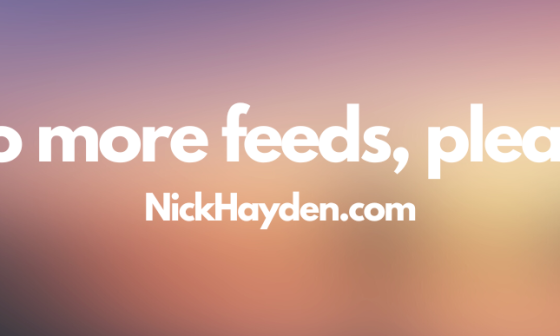Economic disruption means more Creators
It’s difficult to avoid doom and gloom in finance reporting at the moment whether it is bank collapses or rising interest rates we seem to be heading towards a recession, whether or not you agree on the cause and solution to inflation people are worried about a recession and most importantly their jobs. When times are tough people begin to look for alternative sources of income also known by the popular millennial refrain: “The Side Hustle”. A lower effort and easy-to-start side hustle for millennials which have now been in the workforce for two decades is to begin content creation, in this post I would like to explore my hypothesis that we will see more people become content creators in an effort to stave off redundancies and make themselves more valuable in a changing, unstable market.
The common advice on finance subreddits, blogs, and Twitter is that if you can keep your job during a recession you aren’t likely to be effected and ultimately it could be a good thing since if you dollar cost average your investments then everything is effectively on sale for the duration of the recession. For this reason the most important thing a person can do during the lead up to a recession is keep their job or move into a stable company and industry e.g. Banks, Accounting or Utilities. Assuming that some number of us will not be able to have secure jobs we should then look to add more stability to our role and make ourselves more valuable to our employers which is where I believe content creation can help.
These career driven people seeking autonomy and wealth have other potential options when it comes to financial independence such as consulting, creating a product or, opening a store. All of these options require more effort and a greater commitment to the project than the person may be willing to give especially in an uncertain economic environment. It is brave to quit your job and create your own business consulting for clients during boom periods let alone when redundancies are growing and budgets are shrinking.
Content creation is a lower-effort side hustle opportunity that Millennials and Zoomers are familiar with after growing up during the rise of the influencer and social media. Using existing knowledge from their work experience people are able to build their influence within their company and even wider industry to create additional income opportunities or at least demonstrate their value within an existing company. The ultimate end state for these career based content creators is to have their own products and following that support them entirely independent of traditional employment.
The tools to become a content creator are more accessible now than ever before with TikTok, YouTube and Instagram all providing their own short-form video editing tools to reach audiences quickly with well made clips. For creators that want to expand their toolset Canva makes thumbnail creation, graphics and charts far more accessible and where previously a person would need a skilled, sought-after designer these elements can now be made quickly and with low technical literacy.
It is now possible to be successful as a creator with a smaller audience size in career focused niches since the content has the ability to make the viewer money or grow their career. According to CourseMethod in 2019 64% of surveyed course creators were making over $10,000 from their courses with 24% making over 6 figures. These income opportunities range from supplementary income to full time jobs but ultimately provide the same thing, security and stability in uncertain times. Linktree’s creator report shows that the time-spent breakdown for surveyed users with people making $50,000-$100,000 spending less than 10 hours per week on content creation activities, interestingly people earning between $100-$10,000 were spending over 10 hours per week on content creation showing that audience growth and network effects take over at some point to create efficiencies for the creator meaning less hours worked.
Given that side hustles are appealing to many Millennials and Zoomers and that difficult economic times are allegedly coming, people will look for ways to monetise their existing skillset and for many in professional careers this will mean they share their work and industry knowledge.
The jump to monetisation can be challenging and usually requires brand deals, large audiences or products. As a result, most creators do not stick with the process for very long and give up after not seeing results. Linktree’s creator report shows that 68% of part time creators make less than $1,000 and it does not appear that working more hours is the fix with 46% of full time content creators earning less than $1,000.
In Antler’s 2023 creator economy report, Sandy Lin notes that creators are realising it is difficult to build an engaged audience using short form content and are now heading back to YouTube for monetisation opportunities and brand deals. This new class of professional-career creators are joining the industry to share their knowledge, build a profile and generate income streams in their own autonomous way which means they need to consider monetisation pathways early on so they are not boxed into a niche like short form content that becomes difficult to monetise later.
My hypothesis is that we will see more people become content creators in an effort to stave off redundancies and make themselves more valuable in their industry. As traditional job security becomes less certain, the idea of creating content becomes an appealing option. With the accessibility of the tools needed to create content, the potential for additional income, and the desire to stay valuable in one’s industry, it is likely that we will see more people turning to content creation as a means of securing their financial future.
In conclusion, current economic news is scaring a lot of people and watching companies have waves of layoffs means people want to protect themselves and their income. I believe that we will see more content creators in the career-driven, professional space across multiple industries as the tools become more available and cheaper. There is more of a roadmap to being a successful creator now which has coincided with Millennials coming of age in their careers with valuable knowledge to share back to the community. Monetisation will remain a struggle for most creators however some will work out how to engage their audience through products, courses and books.






